Healthy emotions are paramount when it comes to having a stable and mature relationship because, without emotions, a relationship can never survive. But, no matter how strong you might believe your relationship to be, there is one thing that can absolutely destroy it- Unexpressed feelings.
Unexpressed feelings have been one of the main causes of friction in romantic relationships, since forever.
Bottling up your emotions and never expressing them can hamper your relationship for good.
“There is no greater agony than bearing an untold story inside you.” – Maya Angelou
In troubled romantic relationships, unexpressed feelings lead to emotional distance and harsh conflict.
How do you deal with your difficult feelings—including resentment, anger, sadness, hurt, shame, and fear—in your relationship? Do you stuff them inside? Do you attack whoever influenced those feelings to arise?
For example, Ryan and Danny have been married for three years and have an ongoing fight about the TV. Ryan complains about how the TV is always on and sucking Danny into it, while Danny complains that all Ryan does is a nag.
| Words Said or Actions | Feelings | Hidden Wish |
|---|---|---|
| Ryan: “All you care about is the stupid tv and your sports team.” | Loneliness | The criticism hides Ryan’s longing for being fully present with Danny |
| Danny: “I deserve time to relax after work. All you ever do is nag me. Get off my back.” | Anger and inadequacy | The defensiveness hides Danny feeling blocked from the time needed to relax and the fear of not being an adequate lover for Ryan |
| Ryan walks away in anger | Fear of being too much to love | Hopes Danny will turn off the TV and offer reassurance (Hint: Protest behavior) |
| Danny continues watching baseball | Sadness and resentment | Danny wishes that the relationship had less conflict [Danny is conflict avoidant] and feels resentful that issues are brought up when Danny is trying to relax. |
Ryan and Danny are wrestling with the perpetual problem of how they spend time together and as you can see their difficult feelings and needs are deflected or disguised in the way they talk to each other.
Susan David, the author of Emotional Agility, highlights that both good and difficult feelings have been beneficial enough to survive the cut of natural selection. This insight explains that even difficult emotions have an evolutionary value and should be explored as useful, even if they are uncomfortable.
In Ryan and Danny’s case, their lack of emotional intelligence makes it difficult for each of them to see the longing underneath each other’s behaviors.
Because Ryan always complains about the TV and doesn’t share the feelings that influence this complaint, Danny doesn’t get the opportunity to see that Ryan feels lonely and yearns to interact by going on a date or even a walk. Meanwhile, Danny complains that Ryan is a nag, which is driven by feelings of shame about not being a good partner, depriving Ryan of the opportunity to change that inner narrative.
The goal of couples therapy is to create a safe emotional space for partners to risk sharing their vulnerable feelings and narratives so that they can respond to these underlying feelings and meanings in a way that strengthens the relationship. A big piece of couples therapy is exploring and expressing the unexpressed vulnerable feelings.
Read: 10 Things You End Up Doing When You’re Repressing Your Feelings
Your Feelings About Feelings (Meta-Emotions)
The brain is a funny thing. Not only can we feel sad, but we can also feel mad about feeling sad. Then we may feel guilty about feeling sad and try to stop feeling sad. Having feelings about feelings is called meta-emotions. These meta-emotions can block us from expressing certain vulnerable feelings because we were raised to believe that those feelings are bad.
Every single one of us has an emotional heritage that impacts how we express or do not express our feelings. Sometimes an unwillingness to express feelings reflects underlying beliefs, feelings, and prior experiences of emotional expression.
Every one of us grew up in a family with its own philosophy of emotion. Dr. Gottman’s research highlights that families tend to fall into one of four emotional philosophies:
1. Coaching: Accept the expression of all feelings and support one another in coping with difficult feelings (sadness, anger, fear) and resolving problems.
2. Dismissing: Hide feelings, especially difficult ones. By not expressing feelings, the family fails to offer guidance on how to cope with them.
3. Laissez-faire: Accept expression of all feelings, but do not support each other in coping with difficult feelings. The attitude is “this too will pass.”
4. Disapproving: Difficult feelings are hidden and if they are expressed, the response is hostile or critical, which blocks expressing emotions.
Because of Danny’s upbringing in an emotionally dismissive family, it makes sense why he would also dismiss Ryan’s complaint. The meaning he took from his family of origin was “feelings are useless” and thus he must always think “logically.” This also created the message that difficult feelings should be ignored. As a result, he stuffs his difficult feelings or avoids his partner’s difficult feelings by withdrawing.
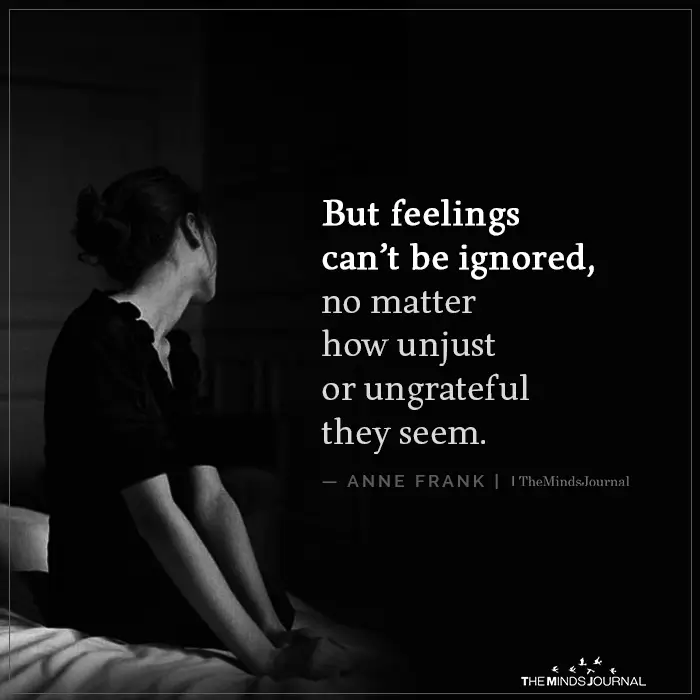
Sadly, these avoidance behaviors deprive Danny of the opportunity to express his feelings or to enhance his experience to cope with difficult feelings or conflicts and strengthen his relationship.
Ryan, on the other hand, tends to get stuck in the emotions. Ryan starts to feel lonely and then feels angry about feeling lonely and begins to criticize Danny, rather than expressing the loneliness in an emotionally intelligent way.
Read: 6 Ways People Avoid Their True Feelings Which Does More Harm Than Not
The Problem With Stuffing Or Stewing Difficult Feelings
When we attempt to banish our feelings, they don’t vanish. The reality is our suppressed emotions leak into other interactions. For example, Danny attempts to stuff his resentment toward Ryan’s criticism and tells himself, “Just roll with it.”
Unfortunately, Danny doesn’t roll with it and when they are sitting down for dinner, he criticizes Ryan for the way the table was set. Or he finds himself raging in his car behind a person who is driving 2 M.P.H. under the speed limit. This is the cost of stuffing feelings.
“We cannot selectively numb emotions, when we numb the painful emotions, we also numb the positive emotions.” – Brene Brown
Not to mention, when we stuff our feelings related to relationship conflict, our partners may perceive our emotional shutdown as “not caring.” The biggest problem with avoiding our feelings is it blocks us from experiencing our capacity to stay connected to our feelings and use our emotions to help resolve conflict.
Stewing in difficult feelings is just the reverse. Instead of stuffing, we ruminate. Like a soup on the hot stove, our feelings and thoughts heat up until they boil over into multiple areas of our lives. We can’t let go of the thoughts and feelings we have. As a result, sometimes the little things become big things.
Susan David likens emotions to quicksand. “The harder you struggle with your emotions, the deeper you sink.”
This is especially true in our romantic relationships because these feelings are related to one of the most significant individuals in our life.
Below are Five Steps to work on expressing the underlying feelings that are continuing to cause problems in your relationship.
Read: How Resilient is Your Love During Relationship Conflicts- 10 Questions To Ask
1. Cultivate Healthy Self-Doubt:
Sometimes our thoughts and feelings feel so “right” that it feels wrong to question them. Many of us are not mindful of the ways our brains filter events in the world to fit our belief system, nor are we aware of how our brain unconsciously fills in the details when we don’t know something such as why our partner continues to not talk to us.
So our brain makes things up, such as: “They just don’t care.”
Like a fish in the sea, we are unaware that we swim in the water of our thoughts and feelings every second of every day.
When you begin to look for evidence to counter this information or become curious about a thought, you give yourself and your relationship a chance to grow. This is why the Gottman Method has couples recognize that there are two subjective views and is also why Terry Real has partners say to each “What I made up about this was…”
2. Choose Courage Over Comfort:
One of the major differences between happy and unhappy couples is how they navigate the difficult emotions in their relationship. Happy couples understand that they can transform the difficult emotions of conflict into material for constructing a stronger relationship.
These happy couples choose to tolerate the difficult emotions and share them in a vulnerable, non-attacking way because they value their relationship more than the difficult feelings.
This is not much different from a person who chooses to go to the gym five days a week at 5:30 am. It’s not that they don’t feel tired and would prefer to stay in bed; it’s that they choose to go even though they do feeling tired.
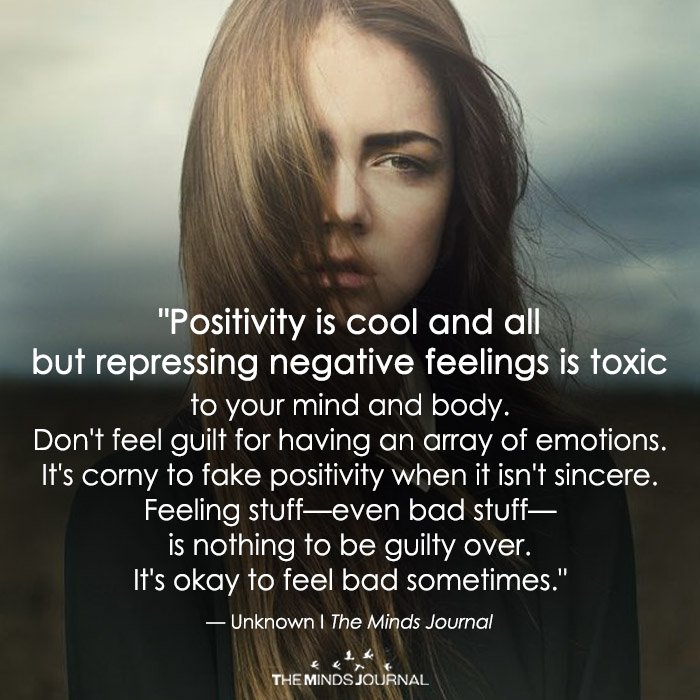
When you are feeling upset or having a difficult time, learn how to courageously and vulnerably express your emotions to your partner (and even yourself) rather than sweeping them under the rug. This includes not calling your three times divorced Aunt Sally to tell her how terrible your partner is.
The reality is feelings are never going away. This leaves you with a choice to use them to your benefit or to continue to let them shape your interactions in unhealthy ways.
3. Live By Your Values, Not Your Thoughts, And Emotions:
Our emotions, especially our difficult ones, are signals of what we value. The problem is that many of us have not intentionally explored what it is we value in life. If you choose to value the quality and connection in your relationship, then you will have an easier time facing your fears of staying engaged in conflict, even when it feels difficult.
When your difficult feelings arise, you now have what Susan David calls a “choice point”—a fork in the road where you can either move towards or away from the type of person you want to be.
“Everything worthwhile in life is won through surmounting the associated negative experience.” – Mark Manson
If you ever talk to really strong couples who have been together for decades, you’ll hear them glorify the struggles they went through. They managed to get through the hardships of life and come out closer, not farther apart. This is because they choose to live by their values, not by what they felt or thought-moment to moment.
4. Enhance Your Emotional Intelligence:
“Emotional Intelligence is the ability to make emotions work for you, instead of against you.” – Justin Bariso
If you stuff your feelings, you will significantly benefit from enhancing your ability to be self-aware and socially aware of how your lack of emotional expression impacts your romantic relationship. On the other hand, if you stew in your feelings, your life will improve if you learn how to healthily regulate your emotions and enhance your relationship management skills so you can use your emotions to enhance your relationship.
Books: EQ Applied: The Real-World Guide to Emotional Intelligence, Emotional Intelligence 2.0, and Emotional Agility
Read: Attachment Theory Explains Why Your Relationships Fail
5. Get An Emotion Coach:
One of the smartest things I did was push myself to go to therapy. This gave me the space to spend 50 minutes a week to explore my thoughts and feelings without reacting to them. I became more mindful of how I thought and how my reactions impacted the important relationships in my life. I was coached on how to experience and express my emotions, even the difficult ones, in a healthy way.
If you tend to struggle to regulate your emotions, then I would highly recommend seeking out a form of individual or couples therapy that can support you in experiencing and expressing your difficult feelings.
For individual therapy, Dialectical Behavioral Therapy helps you become mindful of how your feelings influence your behavior, supports you in accepting them, and teaches you how to tolerate and regulate difficult feelings. Another individual therapy is called Acceptance and Commitment Therapy (ACT). ACT helps you accept your thoughts and feelings as they are and commit to living in accordance with your values even when you don’t feel like it.
For couples therapy, Gottman Couples Therapy and Emotion Focused Couples Therapy is designed to draw out unexpressed emotions and use them to constructively build a stronger and more meaningful relationship.
As Danny and Ryan began to express their difficult feelings in a gentle way and learn how to listen non-defensively, their relationship improved. They uncovered win-win ways of interacting which allowed Ryan to feel loved and important and Danny to feel like a good enough partner.
“That was one of the saddest things about people–their most important thoughts and feelings often went unspoken and barely understood.”
It wasn’t easy getting there because they had to stay engaged during the difficult emotions, but since they valued their relationship more than avoiding the discomfort, their relationship became stronger and more meaningful.
If you are looking for or want a relationship, that will make you the happiest person on the face of the earth, then you will have to work hard for it. When you are in a relationship, not every day is going to be the best. You might have horrible fights or you simply might not like a minor thing your partner is doing.
In such situations, having unexpressed feelings will make the situation worse. Talk with your partner and tell them what is bothering you. Expressing your feelings will go a long way in ensuring that your relationship stands the test of time.
Don’t let unexpressed feelings get in the way of a promising relationship.
If you want to know more about how to deal with unexpressed feelings, watch this video:
Written by Kyle Benson
Originally appeared in Kyle Benson
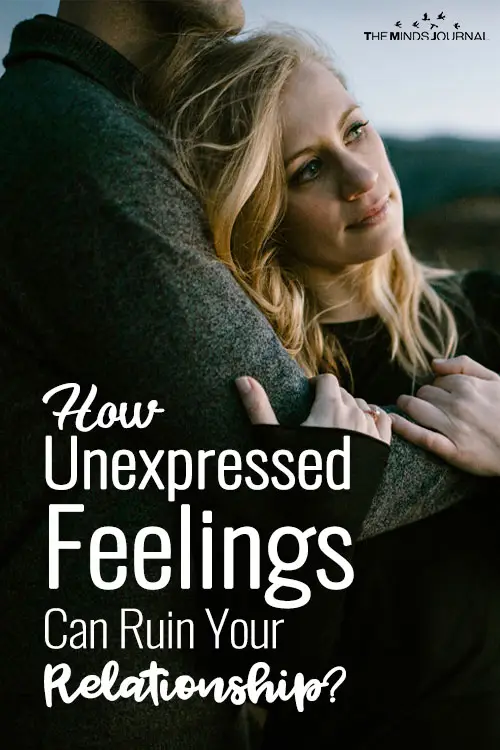
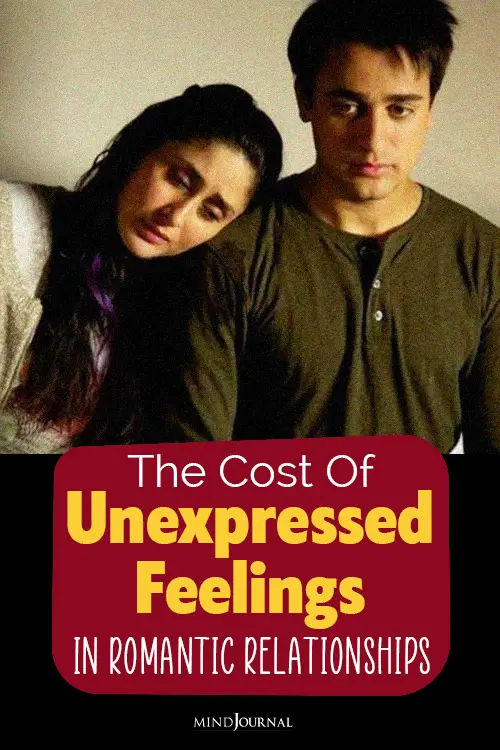
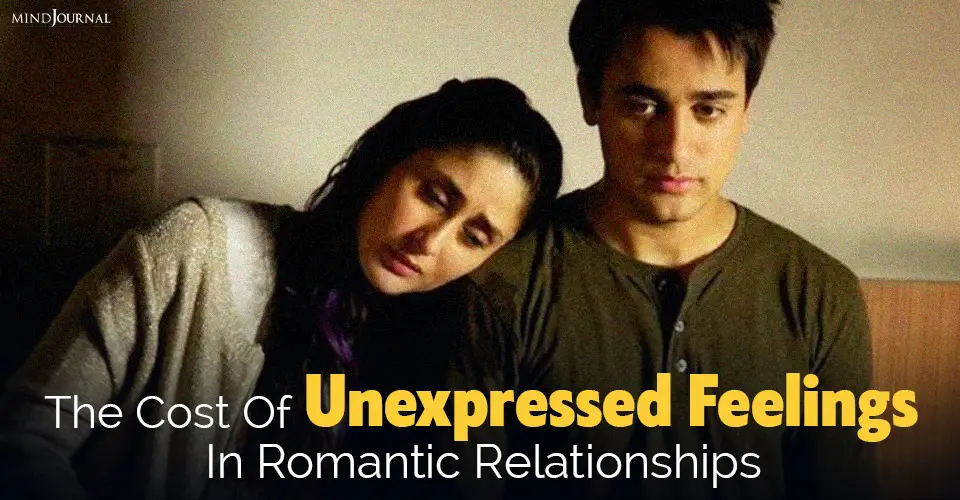







Leave a Reply
You must be logged in to post a comment.